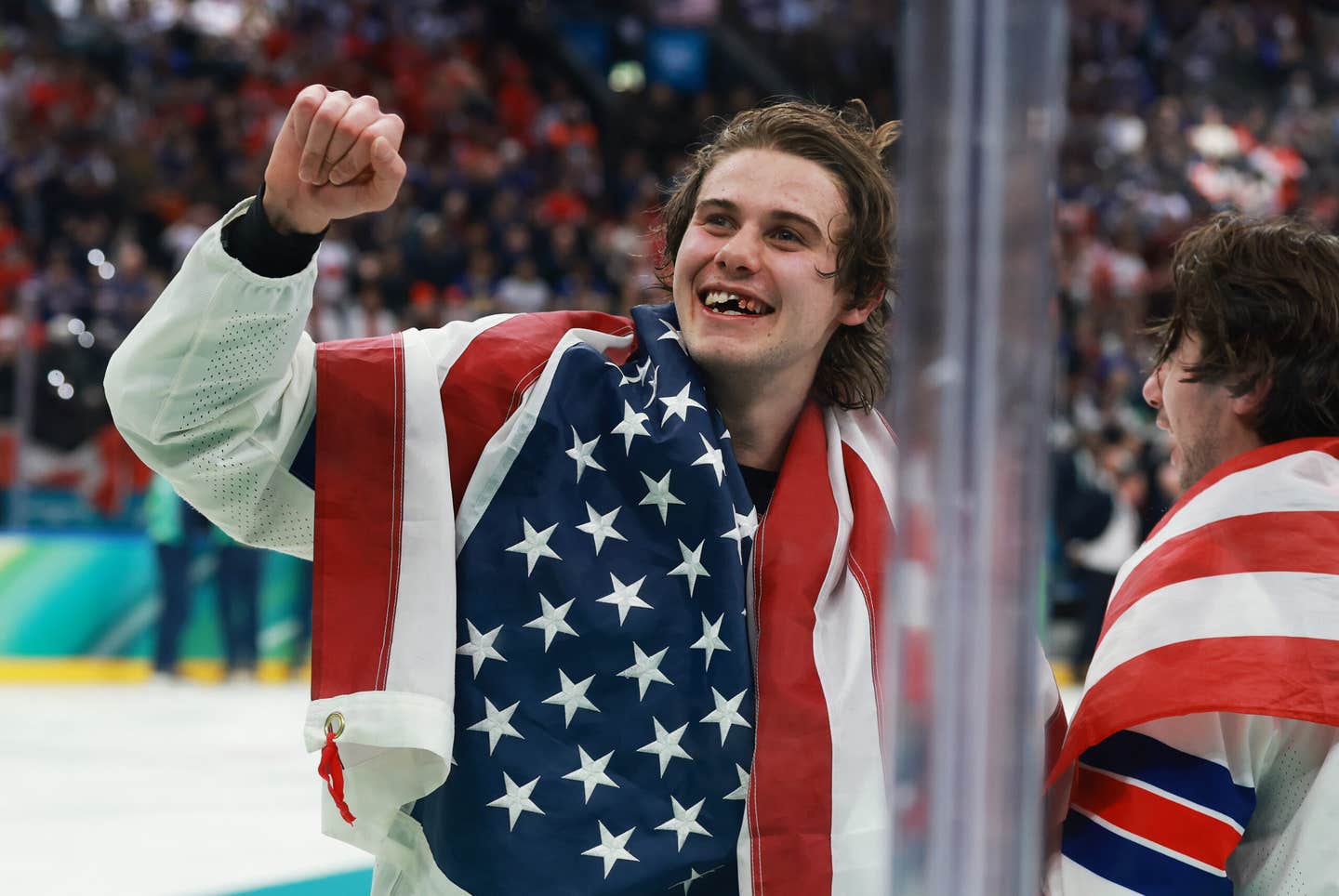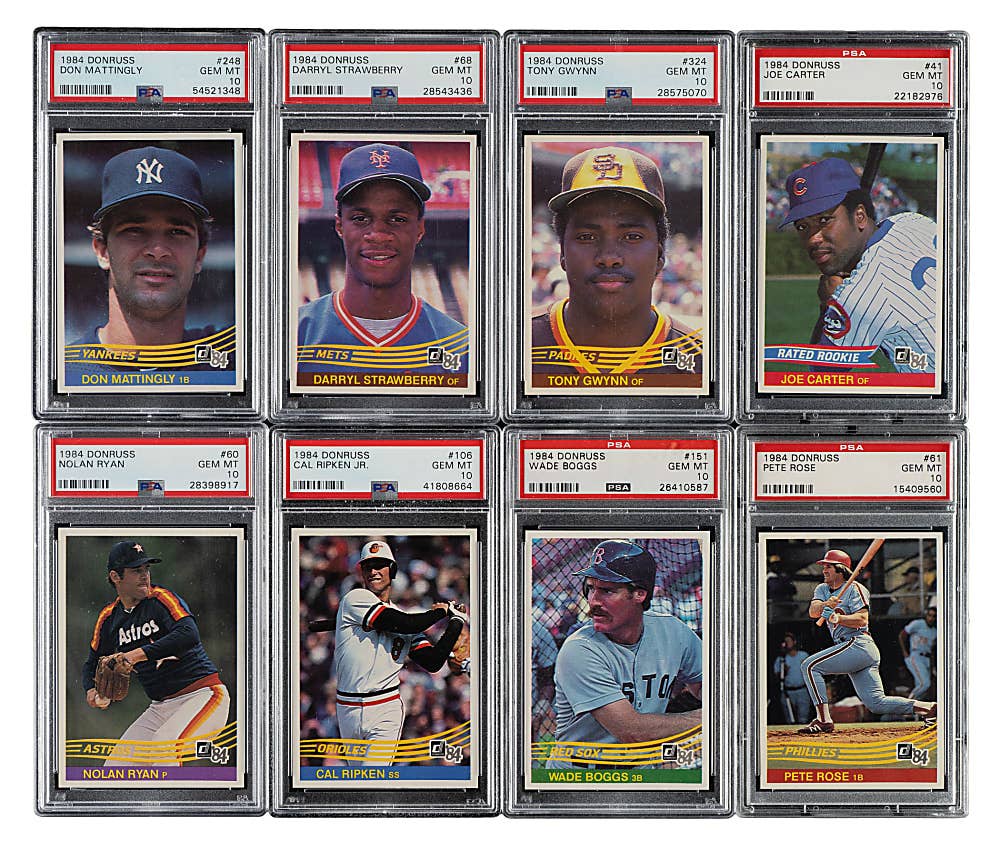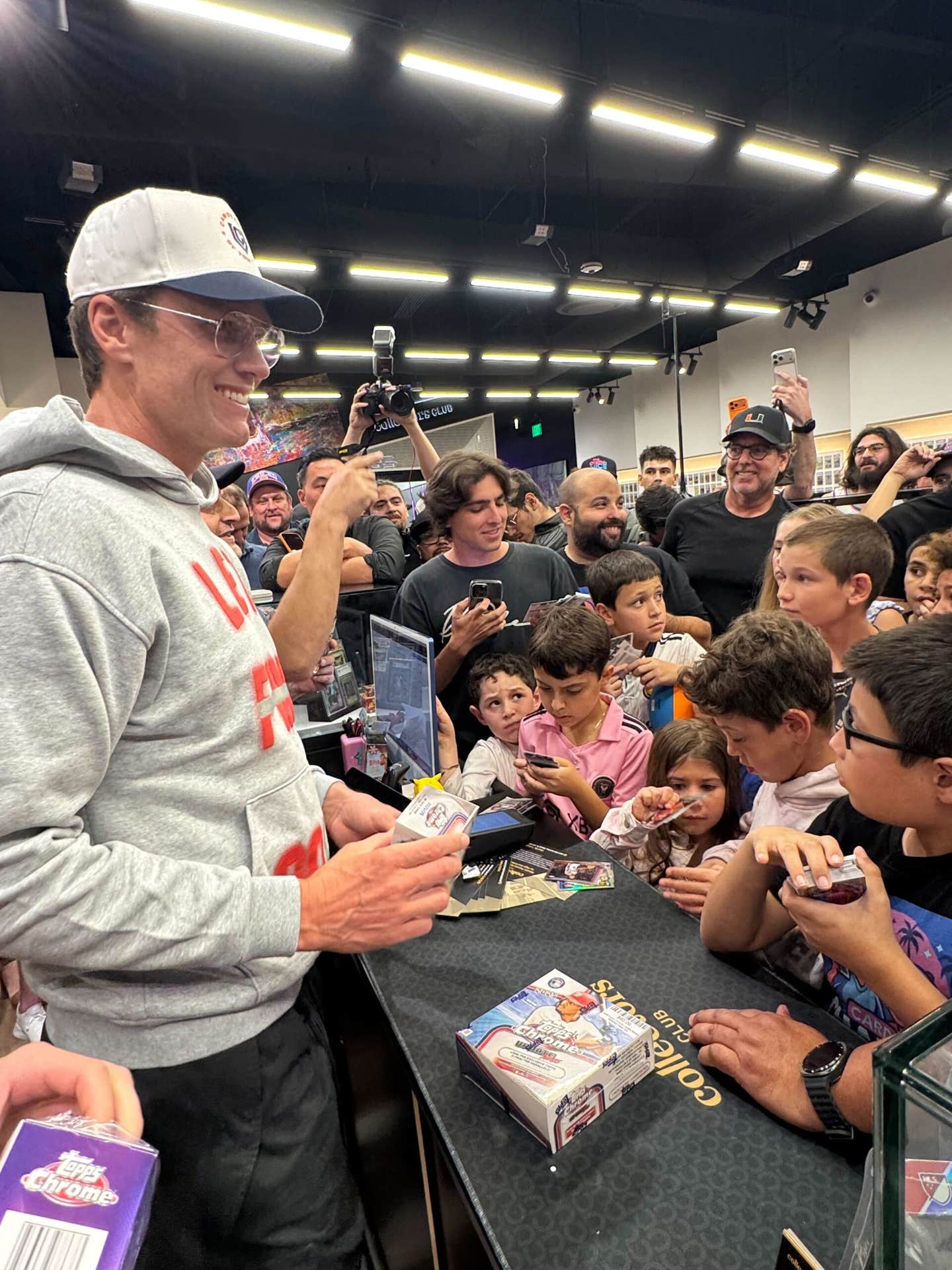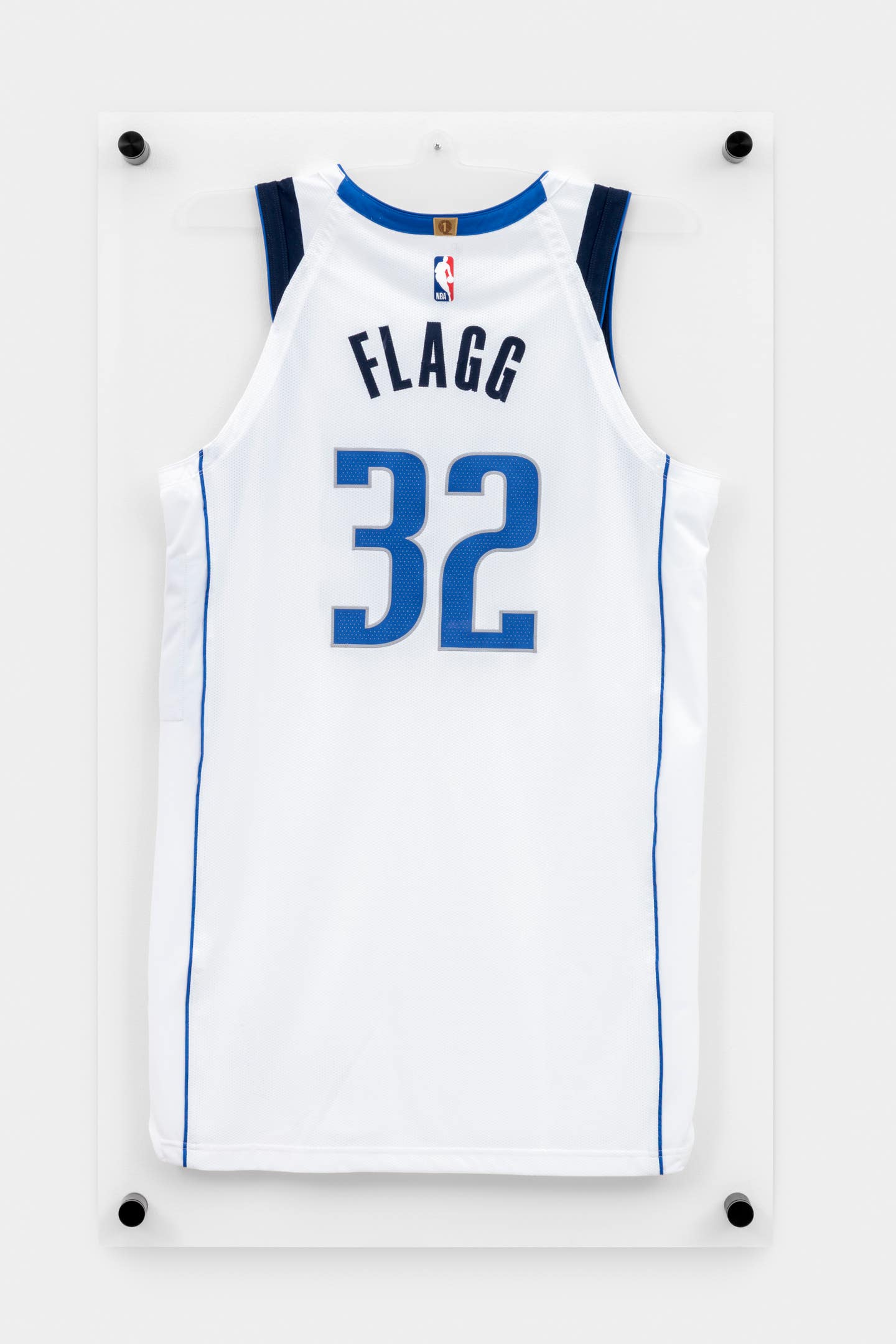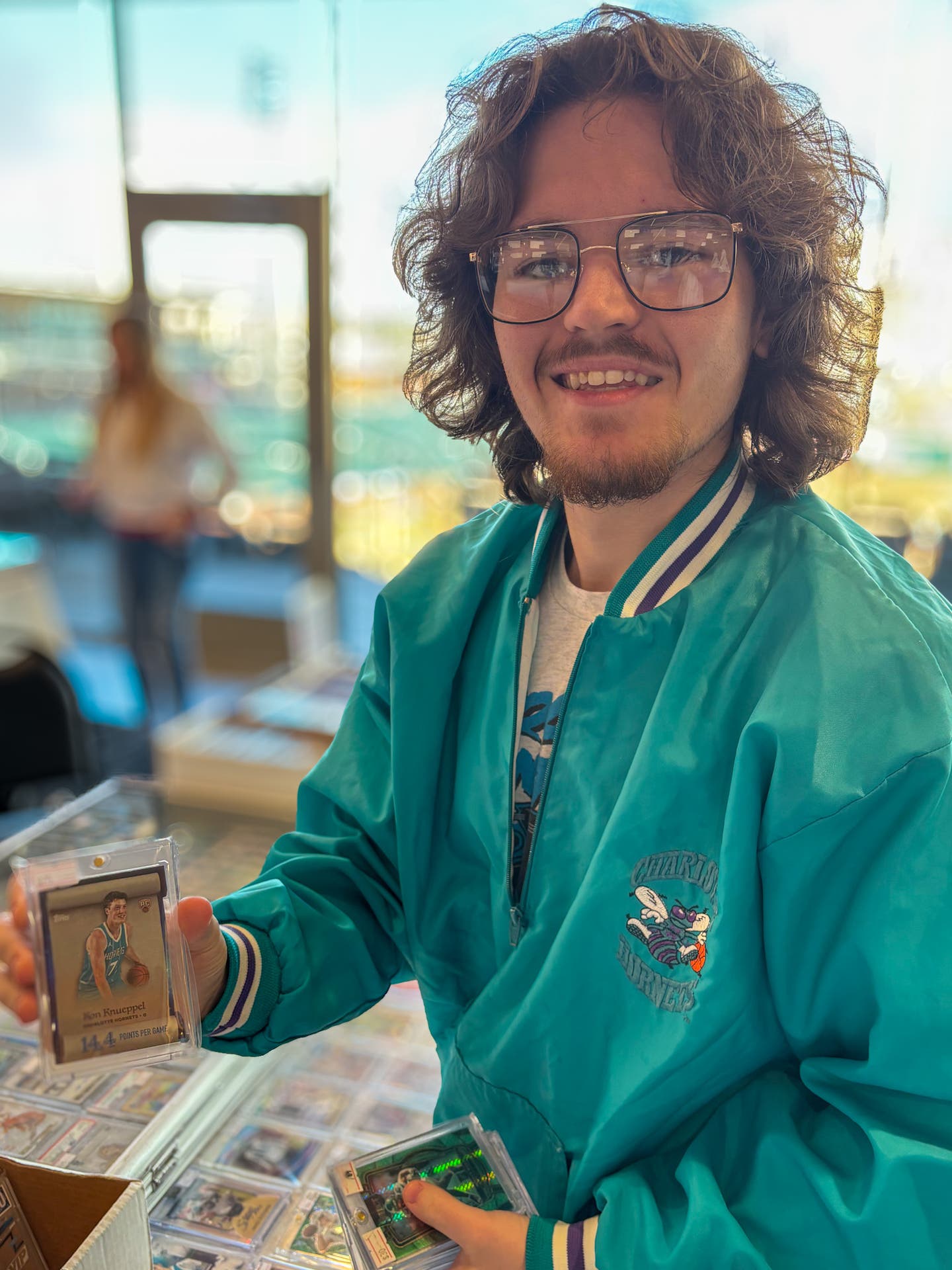News
Chipper Jones spent his entire Hall of Fame career with the Atlanta Braves
By Robert Grayson
Chipper Jones was born to be a switch hitter. He became serious about switch-hitting when he was only seven years old. Really serious. He did drills, he worked at it, and he practiced it. That was thanks to his father, Larry, who idolized a pretty good ballplayer who hit from both sides of the plate—Mickey Mantle.
Chipper’s father was a Yankees fan, even though the elder Jones spent the first part of his childhood in Baltimore before moving with his family to Vero Beach, Florida. Larry Wayne Jones Sr. believed Mantle was the greatest switch hitter who ever lived.
Ever since Chipper Jones was a small child, his dad told him stories of mythical proportions about the Yankees center fielder. Larry Jones Sr. followed Mantle’s every move on the field. During The Mick’s playing days, sports reporters couldn’t write enough about the diamond exploits of the baseball player everyone in the country seemed to worship at the time.
Through his father’s vivid stories about Mantle, it didn’t take long for Chipper to fall in love with baseball and the fabled No. 7. His father’s tales made Chipper want to play baseball just like Mantle. Chipper was in awe of The Mick. It didn’t seem to matter that the younger Jones never got to see the Yankees legend play in an actual game.
Mantle was retired by the time Larry Wayne “Chipper” Jones Jr. was born in 1972. Two years later in 1974, The Mick was elected to the Baseball Hall of Fame. One has to wonder, if, on the day Mantle was inducted into baseball’s shrine, Larry Jones Sr. let his mind wander just far enough to imagine his son Chipper one day joining the great Yankees center fielder in Cooperstown. That’s probably a dream many fathers had for their sons at the time. But for Chipper and his dad, it happened. After getting the call and being told he had been elected to the Baseball Hall of Fame this year, Chipper said he hugged his dad and whispered in his ear, “We did it.” Interestingly, it was Mantle’s father, Elvin, better known as “Mutt,” who pushed Mickey to learn how to hit both righty and lefty.
Chipper grew up in Pierson, Florida. While it may take some people years to acquire a catchy nickname, Chipper got his practically at birth. Family members thought he looked so much like his father they said he was a “chip off the old block.” His parents started calling him “Chip,” which soon became “Chipper,” and the name stuck his entire life. Hardly anyone in Chipper’s hometown of Pierson knew him by his given name of Larry.
Chipper’s dad was a math teacher and the baseball coach at Taylor High School in Pierson. The senior Jones knew his stuff when it came to baseball. He nearly signed a contract with the Chicago Cubs right after college. But the money wasn’t very good and he was married with a child on the way. So he opted for a steadier-paying teaching job and channeled his baseball energies into his newborn baby boy, Larry Jr., when he came along.
As a youngster, Chipper was determined to be a switch hitter like his father’s idol Mickey Mantle, but he learned quickly that wanting to hit from both sides of the plate and being able to do it were two different things.
“Being a good hitter from your natural side is hard work, but from both sides is twice as hard,” Jones says.
A natural right-handed hitter, Jones pointed out that switch hitters put in twice as much time in the batting cage as players who hit from only one side of the plate. The reason, of course, is that they have to perfect and maintain their swings from both sides of the dish, instead of just one.
What made Chipper Jones stand out as a switch hitter during his career was that he had a lifetime batting average of over .300 from both sides of the plate, and they were almost identical. He batted .304 right-handed and .303 left-handed.
Only one other major league player in the history of the game with at least 5,000 career at-bats hit over .300 both righty and lefty. That was the legendary Frankie Frisch, the switch-hitting second baseman for the New York Giants (1919-1926) and the St. Louis Cardinals (1927-1937), who hit .316 during his career. He batted .304 from the right and .320 from the left. Not even Mantle accomplished the feat and neither did another great Hall of Fame switch hitter, Eddie Murray. Pete Rose came close, batting .307 left-handed and .293 right-handed.
His consistency at the plate, hitting from either side, made Chipper Jones a feared man with a bat in his hands. Being a tough out was Chipper’s goal every time he got up.
“I wanted to be known as a tough out. I think when you walk to the plate you have to want to be the toughest out possible,” he said.
That often meant being patient at the plate and taking walks, he noted: “Sometimes being a tough out is about not swinging the bat, especially if they don’t give you anything good to hit. It’s about not being afraid to take a walk. There are times a team is not going to let you get a hit and beat them. That’s when you have to resist the temptation to swing at bad pitches and get yourself out. Sometimes you have to let the guys behind you in the lineup get it done. You’ll end up with a lot of walks. You won’t get a hit, but you will end up on base and that puts pressure on the other team. You did your job.”
Jones said the statistic he takes the greatest pride in from his nearly two-decades-long career is that he had more walks (1,505) than strikeouts (1,409) – a rarity for power hitters. To do that, he pointed out, a hitter has to have a good eye as well as patience.
The man Chipper Jones credited for teaching him everything he knows about hitting is his father. He turned to his dad for fielding tips as well, but it was his offensive prowess that catapulted Chipper to stardom.
“My dad was always my hitting coach. Nobody knew my swing like him. He built it,” the two-time Silver Slugger Award winner said.
The elder Jones was his son’s hitting guru through Little League, American Legion Baseball, high school, the minor leagues, and the majors. Still, Jones Sr. often stood in the background so as not to offend those coaching the team. Chipper’s father stepped down as baseball coach at Taylor High School in Pierson as his son neared the age to play on the team. Larry Jones Sr. believed that coaches are either too tough or too soft on their own kids, Chipper said.
While still in his formative years, Jones played mostly shortstop, but he also pitched. During his freshman year at Taylor, Chipper pitched a one-hitter, an often-overlooked highlight of his schoolboy career. After his freshman year at Taylor, Chipper’s parents felt he’d see better baseball competition at Bolles School, a private college prep school in Jacksonville, Florida.
“I really didn’t want to go there, especially because they usually beat Taylor. I felt like a traitor,” Chipper recalled.
But his parents wanted him to go to the school, so he went. As he did at Taylor, Chipper played both shortstop and toed the mound for the Bolles Bulldogs. The Bulldogs played Taylor three times in the state baseball playoffs while Chipper Jones was on the Bolles squad. Bolles won every time and Chipper admits that he never enjoyed beating Taylor.
In his senior year at Bolles in 1990, Jones led his team to a state baseball championship. That season he batted .488 and had a 7–3 record on the mound with a 1.00 ERA. But all the major league teams who were scouting the young prospect saw Jones as a major league shortstop or at least an everyday position player, not a pitcher, Chipper recalled. The Atlanta Braves had the number one pick in the 1990 draft and most experts thought early on in the process that the Braves would choose highly touted pitcher Todd Van Poppel from Martin High School in Arlington, Texas. Van Poppel could throw 100 mph and the Braves, who were a dismal team at the time (106 losses in 1988 and 97 losses in 1989), were looking for pitching.
But Van Poppel made it known that he wouldn’t sign with the Braves. To his surprise, Jones said, the Braves turned their attention toward him.
“I’ll always believe one of the reasons was that I was a switch hitter,” he said.
With Van Poppel out of the running, Jones became the Braves’ and the major leagues’ number one draft pick in 1990.
One of those who was responsible for making Jones the number one draft pick was the Braves’ general manager at the time, Bobby Cox.
“I’ll always feel being the number one draft pick in the country was a great honor. Bobby Cox was the general manager at the time and he gave that honor to me. I could never be able to repay him for that. I spent my entire career trying to make him proud,” the 46-year-old Jones said.
Cox, who was inducted into baseball’s shrine in 2014 for his work as a manager, went on to manage the Braves (1990–2010) and was in the dugout with Jones from 1993 to 2010.
As it turned out, Van Poppel did get drafted in 1990, but by the Oakland A’s. The A’s made him the 14th overall pick and signed him for $1.2 million—much more than the Braves were planning to offer. Van Poppel never really caught on in the majors, having an up-and-down career for 11 seasons and posting a lifetime 40–52 won-loss record.
Jones, meanwhile, signed with the Braves for $275,000.
“I never regretted signing with the Braves and never wanted to wear any other uniform,” Jones said. “I felt at the time, and still do, that the Braves wanted me and that was important to me.”
As Chipper Jones was starting in rookie ball in 1990 as a shortstop, the Braves were involved in a rebuilding process, led by pitchers like John Smoltz and Tom Glavine, farmhands like Dave Justice, and free agents like first baseman Sid Bream and third baseman Terry Pendleton. It wouldn’t take long to get results.
While the Braves finished last in the National League Western Division in 1990, they finished first in the division in 1991. They then went on to win the National League pennant by defeating the Pittsburgh Pirates 4 games to 3 in the National League Championship Series. Though Atlanta lost the 1991 World Series to the Minnesota Twins in a thrilling seven-game series, the Braves were no longer the doormat of the National League and more help was on the way.
There were some good young players in their farm system, including Chipper Jones, Ryan Klesko, and Javy Lopez. But Chipper Jones had a rough start in his professional baseball career.
Playing rookie ball for the Gulf Coast League Braves in Kissimmee, Florida, in 1990, Jones hit only .229 in 44 games. He knew he had to bulk up, add some muscle, so he lifted weights in the training room at Taylor High School near his home in Pierson, Florida. He also worked relentlessly with his father on hitting and did fielding drills as well.
“I was embarrassed by the way I played in rookie ball and I didn’t want it to happen again,” he said.
For Jones, playing in the minors wasn’t easy; he likened the experience to boot camp.
“The minor league process is a weeding-out process. They’re trying to narrow down the 50, 60, or 70 guys in three rookie ball squads to a handful of guys who can help the big league club,” Chipper Jones said. “So, they’re going to send you to boot camp. You’re going to be up at 9 o’clock, you’re going to be taking ground balls until noon and hitting as well. You might get a ham sandwich and an apple for lunch and then it’s right back out there to play a baseball game.”
He said the games aren’t very good, the bus rides are long, especially when players are coming back from a night game.
“It weeds out people in a hurry and you’ve got to be completely and totally focused on what your goal is to make it through,” he said.
Jones went into the 1991 season about 15 pounds heavier than the year before and ready to go. With the Single-A Macon Braves of the South Atlantic League in 1991 Jones batted .326 with 15 homers. Dividing the 1992 season between the Advanced-A Durham Bulls in the Carolina League and the Double-A Greenville Braves in the Southern League, the up-and-coming star hit a combined .311 and was ready to move up to the next level the following season.
With the Triple-A Richmond Braves in the International League, Jones hit .325 during the 1993 campaign. At the end of the 1993 season, he was called up to the Atlanta Braves and appeared in several games. He got two hits in three at-bats, including a double. That gave Jones enough of a taste of major league action for him want to try to make it to The Show in 1994. But it wouldn’t be as shortstop, the position he played most of his life.
The Braves wanted Jones to play third base or in the outfield—left field in particular. Terry Pendleton, the Braves’ regular third baseman, was beginning to slow down and Bobby Cox thought he could put Chipper at third against right-handed hurlers and give Pendleton some days off. Then, when a lefty was on the hill, he could put Jones in left field. That would have put Chipper in the lineup almost every day, playing either third or left. Jones said he was pleased with the idea, despite the fact that he had never played either the hot corner or left field in pro ball.
It looked like Jones was going to land a job with the big club in 1994. He was having an excellent spring training, batting a lofty .371 with two home runs. But then disaster struck on March 19, 1994.
In the top of the fifth inning of an exhibition game between the New York Yankees and the Braves, Chipper Jones hit a grounder to short. Jones was hustling down the line. The throw from Yankees shortstop Dave Silvestri pulled first baseman Jim Leyritz off the bag. As Leyritz whirled around to tag Jones, the Braves rookie darted out of the way, twisting his body awkwardly and going down in a heap, reeling in pain.
Jones ended up with a torn ACL in his left knee, a season-ending injury and one that put his career in jeopardy. No one expected Jones to return during the 1994 season, but he was pushing himself hard in rehab. Then major league baseball players went on strike on Aug. 12, 1994. It was the fourth in-season work stoppage in major league history.
Now Chipper Jones had no choice but to wait to make his comeback, and his knee would have the time to heal properly. There was no need to rush his return for the 1994 season: It looked as though the strike would force Jones to be patient with the healing process.
Over the 1994–1995 off-season, Terry Pendleton became a free agent and signed with the Florida Marlins. That opened the third base job for Jones, if he could prove that he could handle it on an everyday basis once the work stoppage ended.
The 1995 season would make Chipper Jones a household name, and not just in Atlanta. The strike ended on April 2, 1995 and Opening Day was scheduled for April 26. Jones hadn’t played a game in a year, but he was confident that he could pick up where he left off.
The Braves’ first game of the year was against the San Francisco Giants at Atlanta–Fulton County Stadium. As Greg Maddux threw the season’s first pitch for the Braves, that new kid, Chipper Jones, was starting at third base.
In the bottom of the first inning, the Braves had runners at first and third when Jones came to the plate. He drilled a single to the right side of the infield and Jones’s rookie season was off and running. In what was a harbinger of things to come, the Braves played a series against the Mets at Shea Stadium in early May 1995. That was the first time Jones ever faced the Mets.
“I was a small-town, Southern kid. I was just overwhelmed by New York City. I had put the whole city on a pedestal anyway because that’s where Mickey Mantle had played,” Chipper Jones said.
Jones would soon gain a reputation of his own in the Big Apple and it would start to build almost as soon as he set foot in Shea Stadium. In the first game of the Mets series on May 9, Jones came up in the top of the ninth inning with the score tied 2–2. Chipper hit a 2–0 pitch from Mets reliever Josias Manzanillo into the right field stands to give the Braves a 3–2 lead. That was Jones’s first home run in the majors. The score stayed 3–2 and the Braves won the game. That was the first of many times Jones would break the hearts of Mets fans during his career.
Whenever the Braves played at Shea Stadium, it never took long for a chorus of boos to start as Jones approached home plate there. But Jones would later reveal that he reveled in the long-standing rivalry between his Braves and the Mets that started on May 9, 1995 and ran until the day he retired on Oct. 3, 2012.
Jones hit 19 home runs against the Mets at Shea Stadium during his career and three at Citi Field. All told, he hit 49 round-trippers against the Mets when you add those 22 he hit in NYC to the ones he hit against them in Atlanta. He also batted .309 against New York’s National League team and picked up 265 hits against Mets pitching, including 46 doubles. Not to mention the 159 RBI he collected against the Mets.
Simply put, the Braves’ third baseman was known as a Mets killer. He didn’t like playing the villain, however.
“I’m one of those guys who likes to be liked,” he said. “I think the New York Mets were the closest thing to a rivalry that I had when I was here (with the Braves). Both teams were pretty evenly matched in the late ’90s and early 2000s. There was no love lost between the coaches. There was no love lost between the players, and certainly not between the fan bases.”
But Jones looks back fondly on those games against the Mets, especially the ones played in New York.
“I have never had so much fun playing the game of baseball as I did against that team, that organization, and in that city. I knew early in my career, it was probably more of a hate-hate relationship between the two sides, but ultimately, before the end of my career, I really enjoyed my time going to New York and playing in front of that fan base,” Jones said. “It took some growing up on my part to learn how to handle it up there in New York. But once I did, I think people saw the fundamental change I was trying to make and we started getting along. I started wandering out of my hotel room and down the street and interacting with fans.”
He added, “I really enjoyed playing on that stage. The thing about New York is once you go up there and do something special on that stage, you have the confidence to be able to go elsewhere and do the same thing there.”
And Chipper Jones did.
Lest you think the Mets were the only team happy to see Jones retire in 2012, they weren’t. Jones had a career .331 batting average against the Philadelphia Phillies. The Houston Astros, Colorado Rockies, and San Diego Padres, among several other teams, couldn’t wait for his retirement announcement, either. He was simply relentless against those teams, batting well over .300 against each of them.
Jones was considered one of the great players of his era. In a 19-year career that spanned 1993 to 2012 (he did not play in 1994 due to injury), Jones collected 468 home runs, 2,726 hits, and 1,623 RBI. His career home run total is the third highest of any major league switch hitter in history behind Mantle (536) and Murray (504). Murray has the most career RBI for a switch hitter (1,917); Jones’s 1,623 is second.
But those 1,623 RBI are the most ever collected by a major league third baseman. That’s an accomplishment Jones said he finds “overwhelming.” Why? Because he had to pass two of his boyhood idols to achieve it—both Hall of Famers. Philadelphia Phillies third baseman Mike Schmidt had 1,595 RBI in his career, while George Brett, a Kansas City Royals standout, had 1,596 RBI when he starred at the hot corner.
In 2008, Jones won the National League batting title, hitting .364. He batted over .300 ten times during his career and hit 30 or more home runs six times. Chipper places the credit for his hitting prowess squarely on his father’s shoulders. Thanks to Larry Sr., during the first 15 years of his career, Chipper never went longer than 13 at-bats without a hit.
“When I was going bad, my father could take a look at 10 swings and know what I was doing wrong,” Chipper said. “When I was really struggling, I needed him to come in and take a look.”
Contrary to what you might suspect, Jones hit with more power from his left side, which was not his natural side, than his right side. He said that at the pro level, “They wanted my left-handed swing to be as natural as possible. I took so many swings in batting practice from my left side in the minors, I really built it up.” As a major leaguer the bulk of Jones’s power came when he batted lefty.
When Don Baylor became the Braves’ batting coach in 1999, he wanted Jones to hit with more power from the right side as well. The eight-time All-Star admitted that his dad tried to get him to do the same thing, but the message just wasn’t getting through. Baylor somehow did get through, telling Jones that he had to “strike fear in opponents from both sides of the plate.”
Baylor tinkered just a bit with Chipper’s approach to batting right-handed, showing him how to generate more power from that side. Opponents could see the change.
In 1998 Jones smacked 34 home runs, only two coming from the right side. In 1999, Jones slammed 45 round-trippers with 15 coming from the right side of the plate. In addition, he drew 18 intentional walks when he batted righty in 1999, 17 more than the year before, showing the increase in the fear factor when he turned around and batted righty. In the most telling sign of all that Jones had made the transition to a feared power hitter from both sides, he was voted National League Most Valuable Player in 1999.
The Braves won the National League East Division title in 1999. That was nothing new for the Braves. It was their fifth straight division title in the East, their eighth National League Division title in a row. They had won three straight in the West before being shifted to the National League East in 1994.
In 1995, Chipper’s rookie season, the Braves went all the way to the World Series and won. They defeated the Cleveland Indians in six games. The Braves went to the World Series two more times (1996 and 1999) during Jones’s tenure with the team, but lost both times. Atlanta won 11 consecutive National League East titles (1995–2005) with Jones as a driving force. That was part of the 14 straight division titles the Braves captured from 1991 to 2005, including the three in the West (1991–1993). With the baseball players’ strike in 1994, there were no division winners declared.
There has been some criticism of the Braves for not winning more world championships over the course of their 14 division titles, but Jones takes exception to that.
“I think you have to look at the whole body of work over the 14 years—all those titles, all those winning seasons. I don’t think that will ever be equaled,” he said. “One of the best things about playing for the Braves was coming to spring training every year and knowing you had a chance to win and go to the World Series. I am very grateful to John Schuerholz (the Braves’ general manager and a fellow Hall of Famer) and Bobby Cox for that.”
Jones and the Braves were also involved in the post-season in 2012 in the National League Wild Card game, but lost to the St. Louis Cardinals.
Chipper Jones never came close to becoming a free agent. He said the Braves made it clear they wanted him to stay in Atlanta and he wanted to stay there.
“Being raised in the South, it gave me a great sense of pride playing for the Atlanta Braves. I could never see myself in another uniform and can’t imagine coming to Atlanta and playing against the Braves,” Jones said.
Chipper Jones seemed to be a lock to get into the Baseball Hall of Fame on the first ballot this year. However, the seasoned pro said he took nothing for granted and noted that waiting for the outcome of the vote by the Baseball Writers Association of America was rather nerve-racking.
“Getting into the Hall of Fame is not really something you think about when you’re playing. We immerse ourselves in the game. All we ever do is go out and be one-ninth of the equation that helps win a ball game,” he said. “We are not really thinking that far down the road. It’s obviously a compliment when somebody says you’ve got a chance to make it to the Hall of Fame. But that’s not what our lives are about. We’re too busy showing up at the ballpark at noon, getting ourselves ready to face Clemens, Johnson, Pedro, or Schilling. That’s what we’re worried about.”
The Baseball Hall of Fame already has some legendary members with catchy names like Babe, Mickey, Whitey, Lefty, Yogi, Reggie, and Satchel. Seems like Chipper fits right in.
Robert Grayson is a freelance contributor to Sports Collectors Digest. He can be reached at graydrew18@aol.com.



